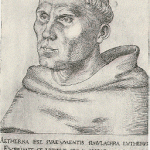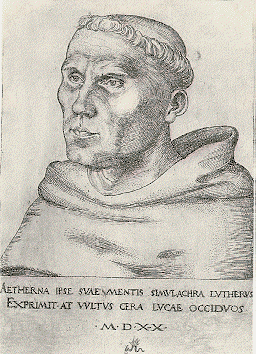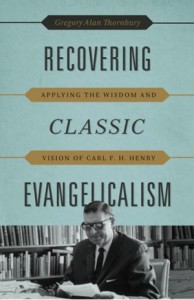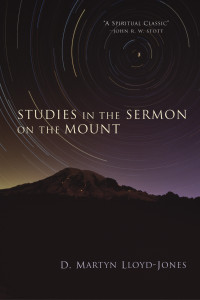Madueme, Hans. “Adam and Eve: An Evangelical Impasse?” Christian Scholar’s Review 45, no. 2 (Winter 2016): 165-183.
Madueme reviews three books on Adam: Karl Giberson’s Saving the Original Sinner, William VanDoodewaard’s The Quest for the Historical Adam, and John Walton’s The Lost World of Adam and Eve.
Madueme finds the strength of Giberson’s book its study of the history of varied interpretations regarding Adam. He also finds instructive the chapter on racism, which recounts why belief in the historical Adam did not prevent racism, as it ought to have, namely, becuase racists held the view that non-Europeans had degenerated from a superior white race. Nonetheless, Madueme finds problems in Giberson’s account. He notes that Giberson’s use of one frequently cited book “is hard to square” with what that source actually says. Giberson also misreads the early church’s view of original sin prior to Augustine. Most significantly, Giberson holds that the Bible itself must submit to “challenge from the advancing knowledge of the present.” Thus Paul is in error. Finally, Madueme notes that Giberson critiques creationist popularizers but fails to interact with creationists who are “reputable scientists (such as Leonard Brand, Arthur Chadwick, Paul Garner, Andrew Snelling, Kurt Wise, Todd Wood) and respected theologians (such as Douglas Kelly, John Mark Reynolds, Iain Duguid, Todd Beall, John Frame).” A critic should always critique his opponents where they are strongest.
Madueme holds out VanDoodewaard’s book as an example of excellent young earth creationist writing. Madueme notes that “of the three books under review, VanDoodewaard’s is the strongest theologically.” He praises VanDoodewaard’s critique of the claim that the creationist tradition is due to the literalist hermeneutic of Seventh Day Adventism. VanDoodewaard shows a heritage with roots in Scottish Presbyterianism, Southern Presbyterianism, the Dutch Reformed, and Lutheranism (both Missouri and Wisconsin synods). Madueme’s critiques are largely that he wishes VanDoodewaard had written a different or an expanded work. He wishes VanDoodewaard had interacted with the writings of more scholars outside the Reformed tradition. He also wishes that VanDoodewaard’s argument regarding a link between the denial of a historical Adam racism also dealt with the racism that existed among literalists. Finally, Madueme wishes that VanDoodewaard had provided more social context in his historical sections. The most substantive critique has to do with VanDoodewaard’s use of the term literalistic. Madueme thinks that adoption of this term both unnecessarily plays into the hands of critics and reflects that fact that VanDoodewaard sometimes sets up a false dichotomy.
Madueme is unconvinced by Walton’s continued work in the opening chapters of Genesis. A foundational premise of Walton’s is that the creation narrated in these opening chapters is functional rather than physical. Madueme thinks this sets up a false dichotomy. Being formed from the dust can both be a literal, historical statement as well as maintain some symbolism. But Walton will only see it one way or the other. Madueme sees it particularly devastating to Walton’s thesis the concession that aside from Romans 5 and 1 Corinthians 15, the New Testament does not treat Adam as an archetype. This shows to Madueme that the dichotomy between first historical human and archetype should not be maintained. Madueme is also concerned that Walton’s approach amounts to an embrace of Stephen Jay Gould’s Non Overlapping Magisterium. While “Walton insists, repeatedly that we should read the Bible on its own terms without imposing modern scientific questions,” the approach is driven (though not “solely” driven, Madueme hastens to add) by scientific concerns. Finally, Madueme is troubled by Walton’s view of accommodation. “On this view, God accommodated his Word to the erroneous beliefs of the biblical authors.” Thus “the background beliefs” of Paul—even as expressed in the text—can be rejected though his “explicit statements” cannot be. But, Madueme notes, “ancient people believed in God or gods, that they exist, that they act in the world, that they engage with humanity, and so on. [Walton] is counseling readers of Scripture ex hypothesi to dismiss those portions as an incidental part of their cognitive environment. Presumably Walton would reply that his methodology only applies to those parts of the Bible that relate to scientific questions; that is, issues in cosmology, biology, and so on. But that proves my point—modern science is having an undue influence. Is this biblical scholarship with a Kantian twist, Scripture within the bounds of a naturalistic science?”
Madueme concludes that Giberson’s book has the advantage of avoiding conflict with the present scientific consensus but suffers from the fatal defect of reconfiguring Christianity in the process. He appreciates VanDoodewaard’s book but finds it too parochial. He urges evangelicals to show young earth creationists more academic respect and for these creationists to argue for their positions without attacking other evangelicals. He thinks that Walton’s book at its best shows “that evangelical biblical scholarship has the resources to engage difficult questions raised by modern science.” But, “at its worst, the picture that emerges is a theologically anemic, hermeneutical mirror dancing to the scientific consensus.”

 To trust in works, which one ought to do in fear, is equivalent to giving oneself the honor and taking it from God, to whom fear is due in connection with every work. But this is completely wrong, namely to please oneself, to enjoy oneself in one’s works, and to adore oneself as an idol.
To trust in works, which one ought to do in fear, is equivalent to giving oneself the honor and taking it from God, to whom fear is due in connection with every work. But this is completely wrong, namely to please oneself, to enjoy oneself in one’s works, and to adore oneself as an idol.

 Here once more we are reminded that our Lord’s method must ever be the pattern and example for all preaching. That is not true preaching which fails to apply its message and its truth; nor true exposition of the Bible that is simply content to open up a passage and then stop. The truth has to be taken into the life, and it has to be lived. Exhortation and application are essential parts of preaching. We see our Lord doing that very thing here. The remainder of the seventh chapter is nothing but a great and grand application of the message of the Sermon on the Mount to the people who first heard it, and to all of us at all times who claim to be Christian.
Here once more we are reminded that our Lord’s method must ever be the pattern and example for all preaching. That is not true preaching which fails to apply its message and its truth; nor true exposition of the Bible that is simply content to open up a passage and then stop. The truth has to be taken into the life, and it has to be lived. Exhortation and application are essential parts of preaching. We see our Lord doing that very thing here. The remainder of the seventh chapter is nothing but a great and grand application of the message of the Sermon on the Mount to the people who first heard it, and to all of us at all times who claim to be Christian.